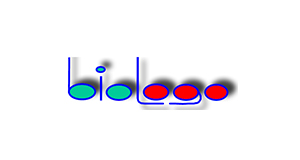Collagen Type I, chicken
Collagen Type I, chicken
Artikelnummer
BILCO20131-0.1
Verpackungseinheit
0,1 ml
Hersteller
BioLogo
Verfügbarkeit:
wird geladen...
Preis wird geladen...
Background: Type I Collagen usually exists as a heterotrimer formed by alpha 1(I) and alpha 2(I) chains and is found in bone, cornea, skin and tendon. In foetal tissues also homotrimers of alpha-1(I) are found, but they are not constituents of normal adult tissues. Collagens consist of a family of highly specialized glycoproteins of which at least 16 genetically distinct types are known to date. The basal unit of a collagen molecule consists of a triple-helical structure formed by 3 alpha-chains. Predominant amino acids are glycine, proline and hydroxproline. Regularly also lysines and hydroxylysines occur, which are responsible for cross-linkage and glycosylation of the protein chains. Different composition of alpha-chains and different glycosylation contribute to the high variability of collagens in different tissues and organs. Chicken collagen type I 100%, chicken collagen type II, III and V <0.1%; chicken fibronectin <0.1% RIA at 1:1000 dilution..
Positive Control: Chicken skin
Immunogen: Purified collagen type I from chicken skin
Purification Method: affinity purified antibody lyophilized from phosphate buffered solution; no BSA and preservative added!
Concentration: app. 1 mg/ml
References: 1. Mauger A., Demarchez M., Herbage D., Grimaud J.A., Druguet M., Hartmann D., Sengel P. (1982) Immunofluorescent localization of collagen types I and III, and of fibronectin during feather morphogenesis in the chick embryo. Dev. Biol. 94, 93-105. 2. Tacchetti C., Quarto R., Nitsch L., Hartmann D.J., Cancedda R. (1987) In vitro morphogenesis of chick embryo hypertrophic cartilage. J. Cell. Biol. 105, 999-1006. 3. Robert J., Hartmann D.J., Sengel P. (1989) Production of fibronectin and collagen types I and III by chick embryo dermal cells cultured on extracellular matrix substrates. Int. J. Dev. Biol. 33, 267-275. 4. Farjanel J., Hartmann D.J., Guidet B., Luquel L., Offenstadt G. (1993) Four markers of collagen metabolism as possible indicators of disease in the adult respiratory distress syndrome. Am. Rev. Respir. DIs. 147, 1091-1099.
UniProt: P02457
Caution: *These antibodies are intended for in vitro research use only. They must not be used for clinical diagnostics and not for in vivo experiments in humans or animals.
Positive Control: Chicken skin
Immunogen: Purified collagen type I from chicken skin
Purification Method: affinity purified antibody lyophilized from phosphate buffered solution; no BSA and preservative added!
Concentration: app. 1 mg/ml
References: 1. Mauger A., Demarchez M., Herbage D., Grimaud J.A., Druguet M., Hartmann D., Sengel P. (1982) Immunofluorescent localization of collagen types I and III, and of fibronectin during feather morphogenesis in the chick embryo. Dev. Biol. 94, 93-105. 2. Tacchetti C., Quarto R., Nitsch L., Hartmann D.J., Cancedda R. (1987) In vitro morphogenesis of chick embryo hypertrophic cartilage. J. Cell. Biol. 105, 999-1006. 3. Robert J., Hartmann D.J., Sengel P. (1989) Production of fibronectin and collagen types I and III by chick embryo dermal cells cultured on extracellular matrix substrates. Int. J. Dev. Biol. 33, 267-275. 4. Farjanel J., Hartmann D.J., Guidet B., Luquel L., Offenstadt G. (1993) Four markers of collagen metabolism as possible indicators of disease in the adult respiratory distress syndrome. Am. Rev. Respir. DIs. 147, 1091-1099.
UniProt: P02457
Caution: *These antibodies are intended for in vitro research use only. They must not be used for clinical diagnostics and not for in vivo experiments in humans or animals.
| Artikelnummer | BILCO20131-0.1 |
|---|---|
| Hersteller | BioLogo |
| Hersteller Artikelnummer | CO20131-0.1 |
| Verpackungseinheit | 0,1 ml |
| Mengeneinheit | STK |
| Reaktivität | Chicken |
| Klonalität | Polyclonal |
| Methode | Immunofluorescence, Immunohistochemistry (paraffin), Western Blotting, ELISA, Radioimmunoassay (RIA) |
| Wirt | Rabbit |
| Produktinformation (PDF) | Download |
| MSDS (PDF) |
|

 English
English







